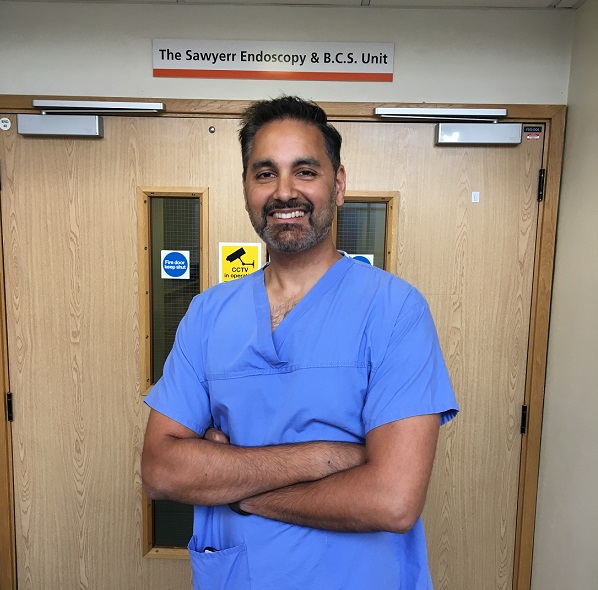New technique increases life expectancy for people with rare liver cancer

Doctors at Whipps Cross Hospital have dramatically improved the outcome of patients with a rare form of liver cancer.
Using a specialist technique, doctors can now extend the lives of patients with liver cancer cholangiocarcinoma, where the main liver tubes become blocked causing liver failure. This form of cancer affects nearly 2 per 100,000 people every year.
Historically, patients with this form of cancer lived for an average of four months. Thanks to this technique several patients at Whipps Cross have lived for up to two years.
In cholangiocarcinoma, drainage tubes (stents) are inserted through the cancer to unblock the liver, meaning people are no longer at risk of liver failure. Traditionally when more than one stent is required, this has been done by inserting a stent through the skin into the liver and then into the intestine; but this can be associated with severe complications that reduce a person’s life expectancy.
Doctors at Whipps Cross Hospital are instead going through patients’ mouths to place two stents into each side of the liver internally, using a specialised camera called an endoscope while the patient is sedated.
As the stents are inserted internally there is less risk of bleeding and damage to other organs. In addition, stents can be inserted in one procedure whereas several procedures are required using the traditional method.
Sudeep Tanwar, consultant gastroenterologist and hepatologist at Barts Health NHS Trust said: “This is great news for our patients with this form of cancer. The complex blockages due to this liver cancer places them at on-going risk of blood poisoning (sepsis), jaundice and liver failure. Thanks to this less invasive procedure - with fewer complications compared to the traditional stenting - I’m delighted that we’re seeing a significant increase in the survival of our patients.”
Doctors have been using the procedure at Whipps Cross Hospital for the last three years, saving patients a journey to central London hospitals while seriously unwell.
